PAST COUNCILORS
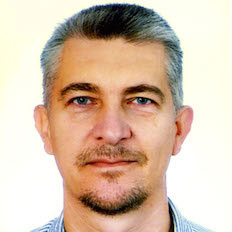 Goran Simic
Goran Simic is a tenured Professor of Neuroscience and Anatomy, and the Head of Neuroscience Department at the Croatian Institute for Brain Research of the University of Zagreb Medical School. In the department, prof. Šimić also leads the Laboratory for Developmental Neuropathology. He graduated from the University of Zagreb Medical School in 1992, where he, after three research fellowships from Karolinska Institute in Stockholm, also received PhD in 1998. His laboratory has extensive expertise in the neuropathology of developmental and neurodegenerative disorders and has established an international cooperation on biomarkers for brain diseases, especially Alzheimer's disease. Prof. Simic was the Editor-in-Chief and Managing Editor of Translational Neuroscience journal from 2010-2016. For his work on etiopathogenesis of spinal muscular atrophy he received The Kurt Jellinger Prize from Acta Neuropathologica and Springer-Verlag in 2008.
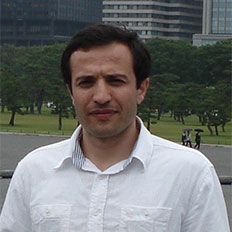 Dr. Ali Jahanshahi
Dr. Ali Jahanshahi is an associate professor in the Department of Neurosurgery at MUMC+. He leads the fundamental neuromodulation research group and is experienced in several rodent models of neurological disorders. Dr. Jahanshahi received his PhD from UM in 2012, conducting research on monoaminergic neurotransmitters alterations in neurodegenerative disorders and neuromodulation. As a postdoctoral researcher at the UM, he was awarded a VENI grant in 2015. In 2016, he joined the Department of Neurosurgery at MUMC+. Currently he is an Associate Professor and leading his own research group consisting of 7 PhD students and 1 postdoc in the field of neuromodulation. He has been primary/co-applicant in a number of successful grant applications including Cure Huntington’s Disease initiative (CHDI, USA), Prosensa BV, NWO, European Society for Stereotactic and Functional Neurosurgery (ESSFN), Stichting de Weijerhorst and Hersenstichting. He has published more than 70 papers in peer-reviewed scientific journals in the field of neuromodulation and neurological and psychiatric disorders.
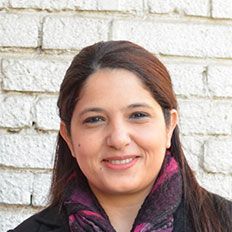 Amira Zaky
Amira Zaky is Professor of Biochemistry at Faculty of Science in Alexandria University-Egypt. Her research line focuses mainly in investigating novel signalling pathways that contribute to the initiation events and eventually lead to neurological disorders progression. She is specifically interested in studying the role of oxidative stress and its associated modulation in the activity of the redox sensor protein Apurinic/Apyrimidinic Endonuclease 1/Redox Factor-1 (APE1/Ref-1) as a Pleiotropic pro-survival protein. Dr. Zaky is an African regional committee member of the governing council of the international brain research organization (IBRO) since 2016 and a member of the Mediterranean neuroscience society (MNS) since 2017.
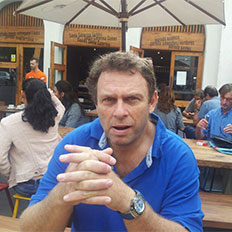 Aviv M. Weinstein
Aviv M. Weinstein, Ph.D is an Associate Professor of Psychology in the School of Behavioral Science in Ariel University in Israel. I did my Ph.D in Psychology in the Psychology Dept. and the Psychopharmacology Unit School of Medical Sciences with David Nutt at the University of Bristol in the UK. He was a visiting research fellow at the Brain Imaging Center, Intramural Research Program (IRP) National Institute on Drug Abuse (NIDA) in Johns Hopkins Bayview Hospital in Baltimore, MD USA where he was trained with Dr. Edythe London in PET brain imaging in drug addiction. Upon his return to Israel he established a laboratory for brain imaging in drug addiction in the Depts. of Nuclear Medicine at Sourasky Medical Center in Tel Aviv and in Hadassah Hospital in Jerusalem. He is a regular member of CPDD, WFSBP, MNS and ISSBA. He has published more than a 80 manuscripts and book chapters on drug and behavioral addiction.
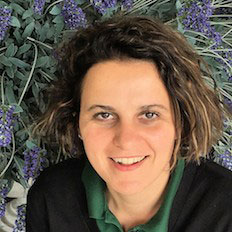 Patrizia Campolongo
Patrizia Campolongo is Associate Professorat the Department of Physiology and Pharmacology of Sapienza University of Rome. She received her PhD in Pharmacology and Toxicology (2006) from Sapienza University of Rome. Subsequently, she was appointed as a post-doc at the School of Medicine of the University of Foggia (2006- 2008). Dr. Campolongo has carried out part of her research projects in California- USA (Center for Neurobiology of Learning and Memory, University of California Irvine, CA 2004-2005) and has been a visiting Professor at the Ludwig Maxmilliam University of Munich in Germany (2013). She received several awards: among them, the Prize “Sapienza Ricerca 2010", for the 6 most promising scientists performing fore-front research within the whole University, the EBBSyoung investigator award (European Brain Behaviour Society, 2011), the “Bertè” prize for the most prominent paper in Pharmacology published in 2009.Her research is focused on the role of the endocannabinoid system in the modulation of memory for emotionally arousing events and it is funded by national (e.g., Italian Ministry of Education, Italian Ministry of Health) and international (e.g., Human Frontier Science Program, Neuron Eranet) agencies.
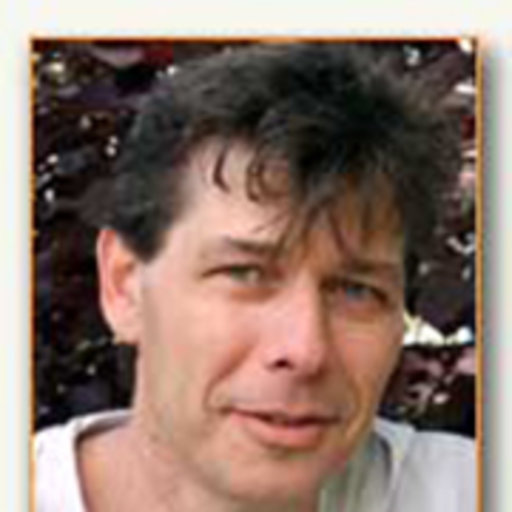 Patrick Vuillez
Patrick Vuillez is Assistant Professor, Faculty of Life Sciences, at Strasbourg University, Institute of Cellular and Integrative Neurosciences, Unit 3212 CNRS.
Team Circadian Clocks and Metabolism. His field of research is Circadian and seasonal rhythms (rodent models).Secretary of the Francophone Society of Chronobiology. He has experiences in Cross-Mediterranean cooperation: PhD codirections with Morocco (2) and Algeria (1). He is representative of the University of Strasbourg and teacher in the EMN-online Master. He taught in 5 Schools, including 4 in Morocco. He was co-organizer of 4 other schools, includingthe 6th-UM5 IBRO School, Rabat, 2018. Other collective responsibilities that he has are: Director of the social action department for employees of the University of Strasbourg. Referent teacher for students with disabilities in the Faculty of Life Sciences.
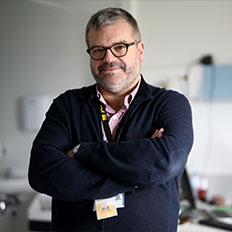 Nuno Sousa
Nuno Sousa (MD, PhD) is Full Professor and President of the School of Medicine, University of Minho. Nuno Sousa, together with a small group of other leaders, was able to create this highly respect medical school, one of the most well-known and respected internationally, from scratch after he moved from U. Porto to U. Minho in 2001.Nuno Sousa serves at several medical education and medical assessment advisory boards (NBME, EuroBMA). He is Visiting Professor at Upstate Medical University, NY.He is a NeuroRadiologist. Presently, he is the Director of the Clinical Academic Center at Hospital de Braga. He is a researcher of the Neuroscience Research Domain, which integrates the newly formed (in 2011) Portuguese Government Associate Laboratory (LA) ICVS/3B´s, the first LA totally based at U. Minho. This is the highest rank a research group can have in Portugal, being awarded by the Ministry of Education and Science. The ICVS is a research institute of the highest quality in medicine, health and life sciences. Nuno Sousa was the President of the Portuguese Society for Neurosciences (2011-2015). He was the President of the Scientific Council of Life and Health Sciences of FCT (Portuguese Science Foundation) and he is currently the President of the Portuguese Society of Anatomy (2015-2018). He is a member of Bial Foundation. Nuno Sousa is the Chief Medical Officer of Pathena, SA and has created 3 Spin-Offs: BnML, Enlighentment and ICognitus. He has received awards and honours for his research accomplishments of which the Gold Medal from the Portuguese Ministry of Health merits a specific mention. Nuno Sousa has published more than 300 peer-reviewed research articles and 15 reviews. Nuno Sousa’s papers have been cited more than 17500 times and his H-factor is 65. Nuno Sousa coordinates several national and international scientific projects, including work-packages in some European initiatives in the field of neuroscience. He has directly supervised 32 PhD students and currently supervises another 6 PhD students and 5 Post-Docs. In addition to academic merits, Nuno Sousa serves on several science policy and advisory board positions, and as an Ad hoc reviewer for various neuroscience journal and international funding organizations. He is Editor-in-Chief of Frontiers in Behavioral Neuroscience and Member of Editorial Board of Molecular Neurodegeneration, Neurobiology of Stress and Neuropharmacology.
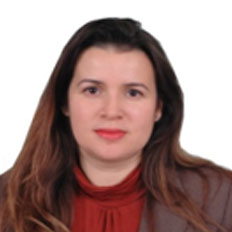 Olfa Masmoudi-Kouki
Olfa Masmoudi-Kouki, is a full professor at Faculty of Sciences of Tunis of University Tunis El Manar and, since 2017 she is head Laboratory of Neurophysiology Cellular Physiopathologyand Biomolecules Valorisation LR18ES03 at the same institution. After graduating in 1994 with a Bachelor's degree in Experimental Sciences, she joined the Faculty of Sciences in Tunis. In 1998, she has obtained its diploma of Maîtrise in Natural Sciences with the mention Good. She then benefited from a scholarship of distinction for postgraduate studies in foreign countries from the Ministry of Higher Education and Scientific Research of Tunisia and the Franco-Tunisian Cooperation. In September 1999, I obtained my DEA in Cellular and Molecular Biology, option Neurosciences at the University of Rouen in France. In January 2005 she has obtained PhD thesis in Cellular and Molecular Neuroscience at the University of Rouen France. All its research work (DEA and PhD thesis) was carried out in the INSERM U413 Laboratory of Cellular and Molecular Neuroendocrinology in the University of Rouen. Following the thesis she began research activities in the laboratory of Functional Neurophysiology and Pathology (UR11ES03) at the Faculty of Sciences of Tunis which contributed to earned HDR diploma (Habilitation to Conduct Researchin June 2009 at the Faculty of Sciences of Tunis on the topic of cellular and molecular physiopathology of neurodegenerative diseases.Her research activities focus on the identification of new neuroprotective and neurotrophic factors using experimental models of neuronal cells (cell lines and primary cultures) and animal models of neurodegenerative diseases. Particular attention is focused on the potential protective role of glial cells. She is the author of several publications (28) and the supervisor of 10 PhD thesis, 7 of which have been defended.She participated in the coordination of 6 European projects and was the head of two PHC-Utique research projects (France-Tunisia exchange programs PHC 16G0820 and PHC20G826). She is member of the scientific council of several academic commissions (Council of the Faculty of Sciences of Tunis, National Sectorial Commission of the University Reform, Commission of Quality Pedagogical Training Support) and president of the PhD commission in Biology at the University Tunis El Manar. She is an active member of many Scientific Societies, a member of the Council of the Mediterranean Neuroscience Society (MNS) and a member of the Executive Committee of the board of Tunisian Association of Laboratory Animal Sciences (ATSAL), Euro-African Association of Environment (AEAE) and Biochemistry and Microbiology Applied Technologies (BMAT).
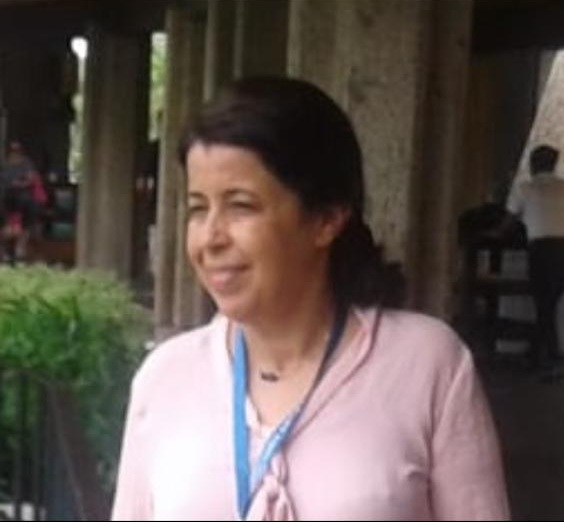 Fatiha Chigr
Fatiha Chigr is a Professor of neurosciences in the Faculty of Sciences and Techniques in Béni Mellal (Morocco) where she is also the head of the Life Sciences department, the head of the biological engineering laboratory, the coordinator of the Bachelor in applied biological sciences and the Master degree in neurosciences and biotechnology. Pr. Chigr's main research interests are the human brain, nutrition, stress and behavior. She wrote about different topics in these fields, e.g. exploring the humain brain in the context of deviating behaviors, the effects of environmental xenobiotics on the neurobiology of nutrition, the effects of stress on the brain and the microbiota, etc. She is a member of the Mediterranean Society of Neurosciences (MNS) where she was a member of the council from 2009 to 2011. She also is a member of the Moroccan Association of Neurosciences, the Society of Neurosciences of Africa, the "Société of Neurosciences" in France, and the International Regulatory Peptides Society. Pr. Chigr co-organized many scientific events of which the fourth Neuromed workshop: food intake from physiology to physiopathology, the Mediterranean Neuroscience School on addiction and addictive behaviors as well as other international schools, meetings and symposia
Professor Chigr held her PhD in Neurosciences from the University of Claude Bernard in Lyon (France).
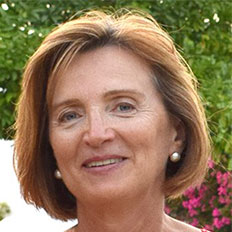 Rosario Moratalla
Rosario Moratalla is Professor at the Cajal Institute in Madrid, Spanish National Research Council (CSIC) and director of Ci2A. She defended her doctoral thesis at the University Complutense de Madrid and continued her work at MIT, Dept. of Brain and Cognitive Sciences in Cambridge, USA (1990-1996). Then, she moved at the Massachusetts General Hospital, Harvard University (1997-1998) in Boston before taking a permanent position at CSIC in Madrid. She is interested in the rules that govern striatal motor function and how these rules change in Parkinson disease and in L-DOPA-induced dyskinesia. Her main goal is to discover how dopamine depletion in PD impairs the processing of motor information in the two main types of striatal projection neurons. In addition, she is also interested in the molecular mechanisms of dopamine neuronal decline and death related to the etiology of PD. She has published more 120 original research papers, directed more than 30 competitive national and international grants, supervised 14 doctoral thesis and have given several international and national talks and seminars. She is coordinator of European research grant Horizon 2020 and has over 23.000 citations (h index: 59). She have received numerous awards and distinctions, such as, woman in science (2009, Castilla-La Mancha Community), Fundación Romanillos, 2018, etc. She sits on the editorial board of several prestigious international journals, member of the evaluation committee of several International Research Agencies (Europe, NSF, ANR France).
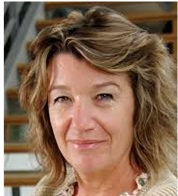 Prof. Nora Abrous
Prof. Nora Abrous
Nora Abrous is a research director at INSERM and is the head of the "Neurogenesis and Physiopathology" team at the Neurocentre Magendie. She obtained her PhD on intracerebral Dopaminergic (DA) grafts in the laboratory of Pr Le Moal in Bordeaux under the supervision of Dr JP Herman. With her PhD in her pocket, Nora Abrous spent two years in Cambridge, England, in Dr. Dunnett's laboratory, working on the topic of brain plasticity and repair of lesions by embryonic neuron implants. Upon her return, she created her own team in Bordeaux and focused her work on functional recoveries, whether spontaneous or induced by DA transplants. After a series of observations revealing the deleterious effects of DA grafts, she decided to abandon this line of research with no future in the treatment of Parkinson's disease. Nora Abrous began the second part of her career in the 1995's questioned by the hypothesis of the existence of nerve stem cells, which can give rise to new neurons in the adult brain. She directs her work towards a link between memory and the production of new neurons, despite the prevailing dogma that nerve cells in the adult brain do not renew themselves. This intuition proved her right, the production of new neurons is linked to cognitive aging. In addition, she analyzed the involvement of glucocorticoids and neurosteroids given their importance in the pathophysiology of aging and found that inhibition or stimulation of neurogenesis is one of the mechanisms by which glucocorticoids may fragilize and neurosteroids may protect, respectively, cognitive functions during aging. After demonstrating a causal relationship between adult hippocampal neurogenesis & relational memory and pattern separation, she revealed that adult hippocampal neurogenesis plays a pivotal role in the appearance of anxiety-like behavior and contributes to a higher vulnerability to cocaine addiction. In addition, her work focuses on shaping adult neurogenesis by deleterious (prenatal stress) and positive (learning) life events. More recently, her work focused on the role of adult neurogenesis and the different waves of developmental neurogenesis in the resilience or vulnerability to develop memory and emotional pathologies.
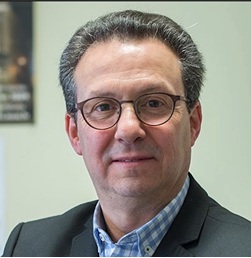 Prof. Abdelhamid Benazzouz
Prof. Abdelhamid Benazzouz
Abdelhamid Benazzouz is a Neurophysiologist Researcher employed by the Inserm Institute working in Bordeaux University. He is expert in the field of Neuroscience and especially in Parkinson’s disease. After completing a Master degree in Morocco, he went to Bordeaux to prepare his PhD diploma in the field of Neuroscience and Pharmacology. Dr. Benazzouz was the first to develop high frequency stimulation (HFS), named also deep brain stimulation (DBS), of the subthalamic nucleus (STN) as a therapeutical approach of Parkinson’s disease. Based on the dramatic improvement of motor symptoms obtained in Monkeys rendered parkinsonians by MPTP, he proposed the transfer of this neurosurgical approach to patients. He joined as a Neurophysiologist Research Fellow the Inserm unit of Professor Alim-Louis Benabid in Grenoble to participate in transfering this approach to parkinsonian patients, with a success that has never failed since. In parallel with his hospital activity as a Neurophysiologist performing the electrophysiological mapping during surgery, he was the head of a research team in the Inserm unit investigating the functional mechanisms of this approach in animal models. In 1998 he was appointed to Inserm position as a permanent position researcher. In 2001, he came back to Bordeaux as a Principal Investigator in the CNRS unit of Professor Bernard Bioulac. In 2005 he was promoted to Research Director position. Since 2011, he is the leader of the Team "Neurochemistry, Deep Brain Stimulation & Parkinson’s disease" in the Institute of Neurodegenerative diseases in University of Bordeaux, in which he is investigating the respective role of monoamines in the pathophysiology of motor and non-motor symptoms of Parkinson’s disease. He was elected to be member of the National Scientific committee of CNRS (2012-2021). He has published more than 130 research papers in peer-reviewed journals and 26 chapters in scientific books as well as more than 80 research contributions at international conferences, international Neuroscience Schools and Universities. Internationally ranked among distinguished scholars, his publications are cited more than 20 thousand times and received 60 degrees on the global H-Index (Google Scholar). Awards and Prizes: The France Parkinson Foundation Prize in 1992, the National Academy of Medicine award in 2003, The Academy of Science award in 2007, Rotary Foundation Paul Harris Fellow Medal and Designation from Rotary International in 2008, Medal of the city of Bordeaux in 2009. The distinction of Scientific Excellence delivered by Inserm in 2010, Honors of the Faculty of Medicine of the University Hassan 2 (Casablanca, Morocco) in 2017, Honors of the Ministry in charge of Moroccans living abroad and the Ministry of Health of Morocco in 2018.
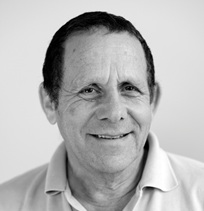 Prof. Hagai Bergman
Prof. Hagai Bergman
Hagai Bergman is the incumbent of the Simone and Bernard Guttman Chair in Brain Research and a Professor of Physiology in the Edmond and Lily Safra Center (ELSC) for Brain Research and Faculty of Medicine of the Hebrew University of Jerusalem, Israel. He is adjutant professor at department of neurosurgery, Hadassah medical center, Jerusalem, Israel. He completed his MD-PhD at the Technion, Haifa at 1984, have done two post-doctorate fellowships with Moshe Abeles at the Hebrew university of Jerusalem and Mahlon DeLong at the Johns Hopkins hospital. Since 1990 he is leading the basal ganglia lab in the Hebrew university of Jerusalem and the physiological navigation in deep brain stimulation (DBS) procedures in the Hadassah medical center and other medical centers in Israel. He is investigating the computational physiology of the basal ganglia and their disorders (e.g., Parkinson's disease and schizophrenia) in non-human primates and human patients. In collaboration with Alpha-Omega, Nazareth, Israel and with other industrial companies he is developing tools for better DBS procedures and therapy.
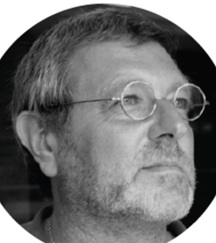 Prof. Gustavo Deco
Prof. Gustavo Deco
Gustavo Deco is an ICREA Research Professor at Pompeu Fabra University (Barcelona). In 1987, he received his Ph.D. in Physics (University of Rosario) and was a post doctoral fellow at the University of Bordeaux. From 1988 to 1990, he was a postdoc at the Alexander von Humboldt Foundation, University of Giessen. From 1990 to 2003, he led the Computational Neuroscience Group, Neural Computing Section, Siemens Corporate Research Center. In 1997, he obtained his PhD in Computer Science, Technical University of Munich (Neural Learning). In 2001, he earned his PhD in Psychology (Visual Attention), Ludwig-Maximilian-University. From 1998 to 2001 he was Associate Professor at the Technical University of Munich. Since 1999 he has been Honorary Professor, University of Rosario; since 2001 Invited Lecturer, Ludwig-Maximilian-University of Munich; since 2016 Associate Researcher, Max Planck Institute for Human Cognitive and Brain Science; since 2017 Adjunct Professor Faculty of Medicine, Monash University; since 2019 Adjunct Professor Faculty of Medicine School of Psychological Sciences and Turner Institute for Brain and Mental Health, Monash University; since 2001, McDonnell-Pew Visiting Fellow, Centre for Cognitive Neuroscience, University of Oxford. Research interests: Computational neuroscience, neuropsychology, psycholinguistics, biological networks, statistical formulation of neural networks, and chaos theory. Publications: 4 books, >344 papers, 35 book chapters. Patents: 52 (Europe, USA, Canada, Japan). Awards: Siemens international prize "Inventor of the Year" 2001. ERC Advanced grant 2012. Current member of the Human Brain Project (EU Flagship).
https://www.upf.edu/web/cns/gustavo
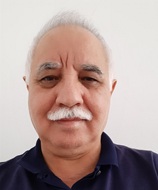 Prof. Süleyman Kaplan
Prof. Süleyman Kaplan
Süleyman Kaplan (PhD), born in Kırşehir, is an academician in the Department of Histology and Embryology, Faculty of Medicine, Ondokuz Mayis University. He completed his undergraduate studies in the Department of Biology, Faculty of Science at Ankara University. In 1984, he started to work as a research assistant in the Department of Morphology (Department of Histology and Embryology) of the Faculty of Medicine at the Ondokuz Mayis University. He received the title of Assistant Professor in 1991, the title of Associate Professor in 1993, and the title of Professor in 2000. He researched Newcastle Upon Tyne University (1992) and Oxford University (2008) in the United Kingdom. He carried out various studies together with numerous national and international researchers. Prof. Süleyman KAPLAN published more than 140 articles in international journals, and he made contributions to numerous books as the author of chapters and an editor of a book. Two thousand two hundred citations (without self-citation) from his publications have been recorded in the journals within the Science Citation Index (SCI) scope. H-index is measured to be 31. He was a member of the Council of Editors of the Turkish Journal of Medical Sciences (TÜBİTAK) and Journal of Chemical Neuroanatomy (Elsevier). He had been performing the duty of editor for the Journal of Experimental and Clinical Medicine. He is the founder and president of the Turkish Society for Stereology (from 1998 to the present).
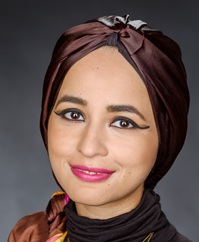 Dr. Radwa Khalil
Dr. Radwa Khalil
Radwa Khalil (PhD) is a research scientist at the Department of Psychology and Methods, Jacobs University Bremen, Germany (
https://orcid.org/0000-0003-2632-8306). Her current research of interest is the neurobiology of creativity (
https://www.linkedin.com/in/radwa-khalil-1b908a38/).
Recently, she obtained her PhD in neuroscience with distinction from jacobs university Bremen. Her research is interdisciplinary, spanning neuroscience, psychology, social science and history. In 2020, she received the DAAD Award from the German Academic Exchange Service for outstanding academic achievements and social and intercultural commitment (
https://nachrichten.idw-online.de/2020/10/26/akademische-exzellenz-und-soziales-engagement-an-der-jacobs-university-radwa-khalil-mit-dem-daad-preis-ausgezeichnet/). Radwa was born in Egypt, and her academic career led her to Europe in 2011, thanks to the Mediterranean Neuroscience Society (MNS). Inspired by MNS and the great middle eastern female scientists leaders who represented excellent role models in developing and serving for MNS, Radwa found it is essential to appreciate women who played vital roles in the evolution of science from the East. To contribute to a broader perception of this topic, which might even advance today's gender roles, Radwa and another researcher from Germany and Australia's Western Sydney University cooperated on a recently published book crossing various disciplines and geographical regions. This book verifies that knowing about Eastern female pioneers' historical contributions in science, politics and arts can advance today's gender roles in Middle Eastern countries and encourage young women with Eastern migration backgrounds living in Western societies. Broadening the public perception of these significant historical figures, therefore, has very high societal relevance. This knowledge offers a detailed evaluation of women's gender roles in Ancient Egypt and the Middle East, outlining their prominence and influence. It also discusses the possible psychological and social impact of this knowledge on today's gender roles.
The evaluation involves crossing disciplines such as natural sciences, neuroscience, psychology, sociology, Islamic theology, history and arts, including diverse geographical regions worldwide
(
https://www.springer.com/gp/book/9789811614125).
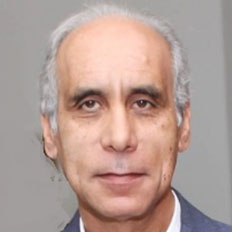 Prof. Mohamed Najimi
Prof. Mohamed Najimi
Mohamed Najimi was a Professor of Neuroscience at Sultan Moulay Slimane, Beni-Mellal, Morocco and head of the Biological Engineering Group in the same university. He holds a PhD in Neuroscience from the Claude Bernard University of Lyon (France) and “Doctorat d’Etat” from Cadi Ayad Univesity, Marrakesh, Morocco. His research activity focused on “the neurobiology of stress”,”neurotoxicology” and “Diabetic Brain” funded by national and international programs (Moroccan Ministry of Education: PPR-B, PICS CNRST/CNRS, Neuromed FP7…). He served as Vice-Treasurer from 2019 to 2022. Professor Mohammed Najimi passed away on the evening of Saturday, February 5, 2022, after a complicated illness lasting a few months.
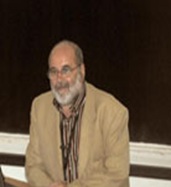 Prof. Paul Pévet
Prof. Paul Pévet
Paul Pévet is a Senior scientist (Directeur de recherche at the CNRS, emeritus since 2013) and actually Professeur conventioné at the University of Strasbourg). He has studied biology at the University of Poitiers (France). In 1972, he moved into the Netherlands Central Institute for Brain Research in Amsterdam and started a work specifically on pineal endocrinology. In March 1976, he obtained a Ph.D. degree at the University of Amsterdam (The Netherlands). In december 1983, having been appointed at the Centre National de la Recherche Scientifique (CNRS) he returned to France where from 1984 to 2001 he conducted a research lab, "Neurobiology of rhythmic and seasonal functions" in the Louis Pasteur University in Strasbourg. In 2005 he founded the “Institute of cellular and integrative Neuroscience” a common Institute between the CNRS and the L. Pasteur University) and was then nominated as its first Director (2005-2010). From 1996 to 2002 he was adjunct-director of the Neuroscience department of the University L. Pasteur (Strasbourg) (IFR des Neurosciences). In 2003 till 2012, he has been nominated Director of this department. In 2003 he was also elected as chairman of the board of Neurex, a trinational federation of neuroscience departments (Universities of Basel -Switzerland- Freiburg –Germany- and Strasbourg –France-). In 2006, he founded also a «European Laboratory for Circadian Research» (LEA n° 367 CNRS-Max Planck Society) which was active till 2015. He was nominated co-director of this lab from 2006 to 2013. Since 1988, he has been actively involved in the development of cooperation and exchanges among Mediterranean neuroscientists, especially with Morocco. He was specifically involved of the creation and the working of the France-Morocco Neuroscience Consortium (GDRI, 2008-2015), and the European consortium NEUROMED (26 partners from 7 Mediterranean countries) funded within the FP7 (International Cooperation, 2009-2013). GDRI and NEUROMED played a key role in the creation of the MNS, in 2009, with the idea of sustaining exchanges and collaborations between Mediterranean neuroscientists for education and research. P. Pévet was one of the founders of the MNS, and member of the executive council from 2009 to 2012. He has also been involved in the creation of the joint Euro-Mediterranean Master's degree in Neuroscience and Biotechnology (held by Marc Landry; 13 partner institutions from around the Mediterranean) which offers teaching strictly common to the institutions that award the degree. This master was supported by local and European funding and has benefited from the Tempus program (ISIS project, 2010-2014). Others European funding’s have then followed. P. Pévet scientific interests revolved around integrative functions of the brain. Throughout his carrier, he has been seeking to understand neuronal and neuroendocrine mechanisms involved in the control of Biological rhythms with a specific interest on the hormone Melatonin. He is a founding member of the "European Pineal Study Group" now the “European Biological Rhythms Society” . From 1977 to 1990 he was the Secretary-treasurer and President from 1990 to 1996.
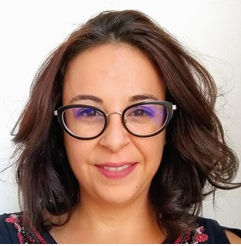 Dr. Azza Sellami
Dr. Azza Sellami
Azza Sellami is a postdoc at the Magendie neurocentre with Aline Marighetto’s team, in Bordeaux, France (
https://neurocentre-magendie.fr/recherche/Marighetto/descriptionTeam.php). She is working on the molecular basis of declarative memory deficits in aging using mice as a model animal. Within the laboratory, she uses different type of behavioural tests. Specifically she trains mice on different radial maze tasks to assess declarative and working memory. Furthermore, she uses different fear conditioning tests to assess normal fear and PTSD like memory. In addition, in collaboration with another team, she developed the in-vivo optogenetics technique in the lab. Therefore she has a strong background in behavioural neuroscience with an expertise in stereotaxic surgery, optogenetics, and behavioural tests.
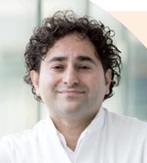 Prof. Yasin Temel
Prof. Yasin Temel
Yasin Temel is a Professor of Neurosurgery at Maastricht University Medical Center (Maastricht, The Netherlands) and combines his clinical work with Neuroscience research. He has organized the MNS meeting of 2012 in Istanbul (Turkey).
 Prof. Maria-Paz Viveros
Prof. Maria-Paz Viveros
Maria-Paz Viveros, PhD in Biological Sciences, Full Professor of Animal Physiology. Complutense University of Madrid (retired). Emeritus Member of the Spanish Society of Physiological Sciences, the Spanish Society of Neuroscience, the European College of Neuropsychopharmacology (ECNP) and the European Brain and Behaviour Society (EBBS). Scientific trajectory: By using animal models, we have investigated factors of vulnerability and critical developmental periods in relation to drug addiction and polydrug use and abuse, with a special interest in the perinatal and adolescent periods. The endocannabinoid system is pivotal in our research work, both as a major modulatory/regulatory system and for its involvement in addiction-related processes. We have also characterized, from a psychoneuroendocrinological perspective, an animal model of early life stress, i.e. maternal deprivation, its long-term effects, and its interactions with additional environmental insults such as drugs of abuse or psychophysiological stress. We have a special interest in sex/gender differences. In fact, we have included both sexes in most of our experimental studies. Summary of my scientific production and activities: More than 120 publications, scientific articles, reviews, and book chapters; principal investigator of several research projects; supervisor of numerous postgraduates' works, including several Doctoral Theses; invited speaker in diverse Universities, Scientific Meetings, and Workshops, including ECNP, Society for Neuroscience (SfN) and Mediterranean Neuroscience Society (MNS) among others. Reviewer for outstanding journals and member of several editorial boards. Currently available for "ad honorem" contributions as a speaker in Scientific Meetings/courses, coauthoring of collaborative scientific review articles related to my research interests, and transferring of scientific knowledge to Society through informative talks related to addiction and, especially, cannabis abuse.
 Goran Simic is a tenured Professor of Neuroscience and Anatomy, and the Head of Neuroscience Department at the Croatian Institute for Brain Research of the University of Zagreb Medical School. In the department, prof. Šimić also leads the Laboratory for Developmental Neuropathology. He graduated from the University of Zagreb Medical School in 1992, where he, after three research fellowships from Karolinska Institute in Stockholm, also received PhD in 1998. His laboratory has extensive expertise in the neuropathology of developmental and neurodegenerative disorders and has established an international cooperation on biomarkers for brain diseases, especially Alzheimer's disease. Prof. Simic was the Editor-in-Chief and Managing Editor of Translational Neuroscience journal from 2010-2016. For his work on etiopathogenesis of spinal muscular atrophy he received The Kurt Jellinger Prize from Acta Neuropathologica and Springer-Verlag in 2008.
Goran Simic is a tenured Professor of Neuroscience and Anatomy, and the Head of Neuroscience Department at the Croatian Institute for Brain Research of the University of Zagreb Medical School. In the department, prof. Šimić also leads the Laboratory for Developmental Neuropathology. He graduated from the University of Zagreb Medical School in 1992, where he, after three research fellowships from Karolinska Institute in Stockholm, also received PhD in 1998. His laboratory has extensive expertise in the neuropathology of developmental and neurodegenerative disorders and has established an international cooperation on biomarkers for brain diseases, especially Alzheimer's disease. Prof. Simic was the Editor-in-Chief and Managing Editor of Translational Neuroscience journal from 2010-2016. For his work on etiopathogenesis of spinal muscular atrophy he received The Kurt Jellinger Prize from Acta Neuropathologica and Springer-Verlag in 2008. Dr. Ali Jahanshahi is an associate professor in the Department of Neurosurgery at MUMC+. He leads the fundamental neuromodulation research group and is experienced in several rodent models of neurological disorders. Dr. Jahanshahi received his PhD from UM in 2012, conducting research on monoaminergic neurotransmitters alterations in neurodegenerative disorders and neuromodulation. As a postdoctoral researcher at the UM, he was awarded a VENI grant in 2015. In 2016, he joined the Department of Neurosurgery at MUMC+. Currently he is an Associate Professor and leading his own research group consisting of 7 PhD students and 1 postdoc in the field of neuromodulation. He has been primary/co-applicant in a number of successful grant applications including Cure Huntington’s Disease initiative (CHDI, USA), Prosensa BV, NWO, European Society for Stereotactic and Functional Neurosurgery (ESSFN), Stichting de Weijerhorst and Hersenstichting. He has published more than 70 papers in peer-reviewed scientific journals in the field of neuromodulation and neurological and psychiatric disorders.
Dr. Ali Jahanshahi is an associate professor in the Department of Neurosurgery at MUMC+. He leads the fundamental neuromodulation research group and is experienced in several rodent models of neurological disorders. Dr. Jahanshahi received his PhD from UM in 2012, conducting research on monoaminergic neurotransmitters alterations in neurodegenerative disorders and neuromodulation. As a postdoctoral researcher at the UM, he was awarded a VENI grant in 2015. In 2016, he joined the Department of Neurosurgery at MUMC+. Currently he is an Associate Professor and leading his own research group consisting of 7 PhD students and 1 postdoc in the field of neuromodulation. He has been primary/co-applicant in a number of successful grant applications including Cure Huntington’s Disease initiative (CHDI, USA), Prosensa BV, NWO, European Society for Stereotactic and Functional Neurosurgery (ESSFN), Stichting de Weijerhorst and Hersenstichting. He has published more than 70 papers in peer-reviewed scientific journals in the field of neuromodulation and neurological and psychiatric disorders.
 Amira Zaky is Professor of Biochemistry at Faculty of Science in Alexandria University-Egypt. Her research line focuses mainly in investigating novel signalling pathways that contribute to the initiation events and eventually lead to neurological disorders progression. She is specifically interested in studying the role of oxidative stress and its associated modulation in the activity of the redox sensor protein Apurinic/Apyrimidinic Endonuclease 1/Redox Factor-1 (APE1/Ref-1) as a Pleiotropic pro-survival protein. Dr. Zaky is an African regional committee member of the governing council of the international brain research organization (IBRO) since 2016 and a member of the Mediterranean neuroscience society (MNS) since 2017.
Amira Zaky is Professor of Biochemistry at Faculty of Science in Alexandria University-Egypt. Her research line focuses mainly in investigating novel signalling pathways that contribute to the initiation events and eventually lead to neurological disorders progression. She is specifically interested in studying the role of oxidative stress and its associated modulation in the activity of the redox sensor protein Apurinic/Apyrimidinic Endonuclease 1/Redox Factor-1 (APE1/Ref-1) as a Pleiotropic pro-survival protein. Dr. Zaky is an African regional committee member of the governing council of the international brain research organization (IBRO) since 2016 and a member of the Mediterranean neuroscience society (MNS) since 2017. Aviv M. Weinstein, Ph.D is an Associate Professor of Psychology in the School of Behavioral Science in Ariel University in Israel. I did my Ph.D in Psychology in the Psychology Dept. and the Psychopharmacology Unit School of Medical Sciences with David Nutt at the University of Bristol in the UK. He was a visiting research fellow at the Brain Imaging Center, Intramural Research Program (IRP) National Institute on Drug Abuse (NIDA) in Johns Hopkins Bayview Hospital in Baltimore, MD USA where he was trained with Dr. Edythe London in PET brain imaging in drug addiction. Upon his return to Israel he established a laboratory for brain imaging in drug addiction in the Depts. of Nuclear Medicine at Sourasky Medical Center in Tel Aviv and in Hadassah Hospital in Jerusalem. He is a regular member of CPDD, WFSBP, MNS and ISSBA. He has published more than a 80 manuscripts and book chapters on drug and behavioral addiction.
Aviv M. Weinstein, Ph.D is an Associate Professor of Psychology in the School of Behavioral Science in Ariel University in Israel. I did my Ph.D in Psychology in the Psychology Dept. and the Psychopharmacology Unit School of Medical Sciences with David Nutt at the University of Bristol in the UK. He was a visiting research fellow at the Brain Imaging Center, Intramural Research Program (IRP) National Institute on Drug Abuse (NIDA) in Johns Hopkins Bayview Hospital in Baltimore, MD USA where he was trained with Dr. Edythe London in PET brain imaging in drug addiction. Upon his return to Israel he established a laboratory for brain imaging in drug addiction in the Depts. of Nuclear Medicine at Sourasky Medical Center in Tel Aviv and in Hadassah Hospital in Jerusalem. He is a regular member of CPDD, WFSBP, MNS and ISSBA. He has published more than a 80 manuscripts and book chapters on drug and behavioral addiction. Patrizia Campolongo is Associate Professorat the Department of Physiology and Pharmacology of Sapienza University of Rome. She received her PhD in Pharmacology and Toxicology (2006) from Sapienza University of Rome. Subsequently, she was appointed as a post-doc at the School of Medicine of the University of Foggia (2006- 2008). Dr. Campolongo has carried out part of her research projects in California- USA (Center for Neurobiology of Learning and Memory, University of California Irvine, CA 2004-2005) and has been a visiting Professor at the Ludwig Maxmilliam University of Munich in Germany (2013). She received several awards: among them, the Prize “Sapienza Ricerca 2010", for the 6 most promising scientists performing fore-front research within the whole University, the EBBSyoung investigator award (European Brain Behaviour Society, 2011), the “Bertè” prize for the most prominent paper in Pharmacology published in 2009.Her research is focused on the role of the endocannabinoid system in the modulation of memory for emotionally arousing events and it is funded by national (e.g., Italian Ministry of Education, Italian Ministry of Health) and international (e.g., Human Frontier Science Program, Neuron Eranet) agencies.
Patrizia Campolongo is Associate Professorat the Department of Physiology and Pharmacology of Sapienza University of Rome. She received her PhD in Pharmacology and Toxicology (2006) from Sapienza University of Rome. Subsequently, she was appointed as a post-doc at the School of Medicine of the University of Foggia (2006- 2008). Dr. Campolongo has carried out part of her research projects in California- USA (Center for Neurobiology of Learning and Memory, University of California Irvine, CA 2004-2005) and has been a visiting Professor at the Ludwig Maxmilliam University of Munich in Germany (2013). She received several awards: among them, the Prize “Sapienza Ricerca 2010", for the 6 most promising scientists performing fore-front research within the whole University, the EBBSyoung investigator award (European Brain Behaviour Society, 2011), the “Bertè” prize for the most prominent paper in Pharmacology published in 2009.Her research is focused on the role of the endocannabinoid system in the modulation of memory for emotionally arousing events and it is funded by national (e.g., Italian Ministry of Education, Italian Ministry of Health) and international (e.g., Human Frontier Science Program, Neuron Eranet) agencies. Patrick Vuillez is Assistant Professor, Faculty of Life Sciences, at Strasbourg University, Institute of Cellular and Integrative Neurosciences, Unit 3212 CNRS. Team Circadian Clocks and Metabolism. His field of research is Circadian and seasonal rhythms (rodent models).Secretary of the Francophone Society of Chronobiology. He has experiences in Cross-Mediterranean cooperation: PhD codirections with Morocco (2) and Algeria (1). He is representative of the University of Strasbourg and teacher in the EMN-online Master. He taught in 5 Schools, including 4 in Morocco. He was co-organizer of 4 other schools, includingthe 6th-UM5 IBRO School, Rabat, 2018. Other collective responsibilities that he has are: Director of the social action department for employees of the University of Strasbourg. Referent teacher for students with disabilities in the Faculty of Life Sciences.
Patrick Vuillez is Assistant Professor, Faculty of Life Sciences, at Strasbourg University, Institute of Cellular and Integrative Neurosciences, Unit 3212 CNRS. Team Circadian Clocks and Metabolism. His field of research is Circadian and seasonal rhythms (rodent models).Secretary of the Francophone Society of Chronobiology. He has experiences in Cross-Mediterranean cooperation: PhD codirections with Morocco (2) and Algeria (1). He is representative of the University of Strasbourg and teacher in the EMN-online Master. He taught in 5 Schools, including 4 in Morocco. He was co-organizer of 4 other schools, includingthe 6th-UM5 IBRO School, Rabat, 2018. Other collective responsibilities that he has are: Director of the social action department for employees of the University of Strasbourg. Referent teacher for students with disabilities in the Faculty of Life Sciences. Nuno Sousa (MD, PhD) is Full Professor and President of the School of Medicine, University of Minho. Nuno Sousa, together with a small group of other leaders, was able to create this highly respect medical school, one of the most well-known and respected internationally, from scratch after he moved from U. Porto to U. Minho in 2001.Nuno Sousa serves at several medical education and medical assessment advisory boards (NBME, EuroBMA). He is Visiting Professor at Upstate Medical University, NY.He is a NeuroRadiologist. Presently, he is the Director of the Clinical Academic Center at Hospital de Braga. He is a researcher of the Neuroscience Research Domain, which integrates the newly formed (in 2011) Portuguese Government Associate Laboratory (LA) ICVS/3B´s, the first LA totally based at U. Minho. This is the highest rank a research group can have in Portugal, being awarded by the Ministry of Education and Science. The ICVS is a research institute of the highest quality in medicine, health and life sciences. Nuno Sousa was the President of the Portuguese Society for Neurosciences (2011-2015). He was the President of the Scientific Council of Life and Health Sciences of FCT (Portuguese Science Foundation) and he is currently the President of the Portuguese Society of Anatomy (2015-2018). He is a member of Bial Foundation. Nuno Sousa is the Chief Medical Officer of Pathena, SA and has created 3 Spin-Offs: BnML, Enlighentment and ICognitus. He has received awards and honours for his research accomplishments of which the Gold Medal from the Portuguese Ministry of Health merits a specific mention. Nuno Sousa has published more than 300 peer-reviewed research articles and 15 reviews. Nuno Sousa’s papers have been cited more than 17500 times and his H-factor is 65. Nuno Sousa coordinates several national and international scientific projects, including work-packages in some European initiatives in the field of neuroscience. He has directly supervised 32 PhD students and currently supervises another 6 PhD students and 5 Post-Docs. In addition to academic merits, Nuno Sousa serves on several science policy and advisory board positions, and as an Ad hoc reviewer for various neuroscience journal and international funding organizations. He is Editor-in-Chief of Frontiers in Behavioral Neuroscience and Member of Editorial Board of Molecular Neurodegeneration, Neurobiology of Stress and Neuropharmacology.
Nuno Sousa (MD, PhD) is Full Professor and President of the School of Medicine, University of Minho. Nuno Sousa, together with a small group of other leaders, was able to create this highly respect medical school, one of the most well-known and respected internationally, from scratch after he moved from U. Porto to U. Minho in 2001.Nuno Sousa serves at several medical education and medical assessment advisory boards (NBME, EuroBMA). He is Visiting Professor at Upstate Medical University, NY.He is a NeuroRadiologist. Presently, he is the Director of the Clinical Academic Center at Hospital de Braga. He is a researcher of the Neuroscience Research Domain, which integrates the newly formed (in 2011) Portuguese Government Associate Laboratory (LA) ICVS/3B´s, the first LA totally based at U. Minho. This is the highest rank a research group can have in Portugal, being awarded by the Ministry of Education and Science. The ICVS is a research institute of the highest quality in medicine, health and life sciences. Nuno Sousa was the President of the Portuguese Society for Neurosciences (2011-2015). He was the President of the Scientific Council of Life and Health Sciences of FCT (Portuguese Science Foundation) and he is currently the President of the Portuguese Society of Anatomy (2015-2018). He is a member of Bial Foundation. Nuno Sousa is the Chief Medical Officer of Pathena, SA and has created 3 Spin-Offs: BnML, Enlighentment and ICognitus. He has received awards and honours for his research accomplishments of which the Gold Medal from the Portuguese Ministry of Health merits a specific mention. Nuno Sousa has published more than 300 peer-reviewed research articles and 15 reviews. Nuno Sousa’s papers have been cited more than 17500 times and his H-factor is 65. Nuno Sousa coordinates several national and international scientific projects, including work-packages in some European initiatives in the field of neuroscience. He has directly supervised 32 PhD students and currently supervises another 6 PhD students and 5 Post-Docs. In addition to academic merits, Nuno Sousa serves on several science policy and advisory board positions, and as an Ad hoc reviewer for various neuroscience journal and international funding organizations. He is Editor-in-Chief of Frontiers in Behavioral Neuroscience and Member of Editorial Board of Molecular Neurodegeneration, Neurobiology of Stress and Neuropharmacology. Olfa Masmoudi-Kouki, is a full professor at Faculty of Sciences of Tunis of University Tunis El Manar and, since 2017 she is head Laboratory of Neurophysiology Cellular Physiopathologyand Biomolecules Valorisation LR18ES03 at the same institution. After graduating in 1994 with a Bachelor's degree in Experimental Sciences, she joined the Faculty of Sciences in Tunis. In 1998, she has obtained its diploma of Maîtrise in Natural Sciences with the mention Good. She then benefited from a scholarship of distinction for postgraduate studies in foreign countries from the Ministry of Higher Education and Scientific Research of Tunisia and the Franco-Tunisian Cooperation. In September 1999, I obtained my DEA in Cellular and Molecular Biology, option Neurosciences at the University of Rouen in France. In January 2005 she has obtained PhD thesis in Cellular and Molecular Neuroscience at the University of Rouen France. All its research work (DEA and PhD thesis) was carried out in the INSERM U413 Laboratory of Cellular and Molecular Neuroendocrinology in the University of Rouen. Following the thesis she began research activities in the laboratory of Functional Neurophysiology and Pathology (UR11ES03) at the Faculty of Sciences of Tunis which contributed to earned HDR diploma (Habilitation to Conduct Researchin June 2009 at the Faculty of Sciences of Tunis on the topic of cellular and molecular physiopathology of neurodegenerative diseases.Her research activities focus on the identification of new neuroprotective and neurotrophic factors using experimental models of neuronal cells (cell lines and primary cultures) and animal models of neurodegenerative diseases. Particular attention is focused on the potential protective role of glial cells. She is the author of several publications (28) and the supervisor of 10 PhD thesis, 7 of which have been defended.She participated in the coordination of 6 European projects and was the head of two PHC-Utique research projects (France-Tunisia exchange programs PHC 16G0820 and PHC20G826). She is member of the scientific council of several academic commissions (Council of the Faculty of Sciences of Tunis, National Sectorial Commission of the University Reform, Commission of Quality Pedagogical Training Support) and president of the PhD commission in Biology at the University Tunis El Manar. She is an active member of many Scientific Societies, a member of the Council of the Mediterranean Neuroscience Society (MNS) and a member of the Executive Committee of the board of Tunisian Association of Laboratory Animal Sciences (ATSAL), Euro-African Association of Environment (AEAE) and Biochemistry and Microbiology Applied Technologies (BMAT).
Olfa Masmoudi-Kouki, is a full professor at Faculty of Sciences of Tunis of University Tunis El Manar and, since 2017 she is head Laboratory of Neurophysiology Cellular Physiopathologyand Biomolecules Valorisation LR18ES03 at the same institution. After graduating in 1994 with a Bachelor's degree in Experimental Sciences, she joined the Faculty of Sciences in Tunis. In 1998, she has obtained its diploma of Maîtrise in Natural Sciences with the mention Good. She then benefited from a scholarship of distinction for postgraduate studies in foreign countries from the Ministry of Higher Education and Scientific Research of Tunisia and the Franco-Tunisian Cooperation. In September 1999, I obtained my DEA in Cellular and Molecular Biology, option Neurosciences at the University of Rouen in France. In January 2005 she has obtained PhD thesis in Cellular and Molecular Neuroscience at the University of Rouen France. All its research work (DEA and PhD thesis) was carried out in the INSERM U413 Laboratory of Cellular and Molecular Neuroendocrinology in the University of Rouen. Following the thesis she began research activities in the laboratory of Functional Neurophysiology and Pathology (UR11ES03) at the Faculty of Sciences of Tunis which contributed to earned HDR diploma (Habilitation to Conduct Researchin June 2009 at the Faculty of Sciences of Tunis on the topic of cellular and molecular physiopathology of neurodegenerative diseases.Her research activities focus on the identification of new neuroprotective and neurotrophic factors using experimental models of neuronal cells (cell lines and primary cultures) and animal models of neurodegenerative diseases. Particular attention is focused on the potential protective role of glial cells. She is the author of several publications (28) and the supervisor of 10 PhD thesis, 7 of which have been defended.She participated in the coordination of 6 European projects and was the head of two PHC-Utique research projects (France-Tunisia exchange programs PHC 16G0820 and PHC20G826). She is member of the scientific council of several academic commissions (Council of the Faculty of Sciences of Tunis, National Sectorial Commission of the University Reform, Commission of Quality Pedagogical Training Support) and president of the PhD commission in Biology at the University Tunis El Manar. She is an active member of many Scientific Societies, a member of the Council of the Mediterranean Neuroscience Society (MNS) and a member of the Executive Committee of the board of Tunisian Association of Laboratory Animal Sciences (ATSAL), Euro-African Association of Environment (AEAE) and Biochemistry and Microbiology Applied Technologies (BMAT). Fatiha Chigr is a Professor of neurosciences in the Faculty of Sciences and Techniques in Béni Mellal (Morocco) where she is also the head of the Life Sciences department, the head of the biological engineering laboratory, the coordinator of the Bachelor in applied biological sciences and the Master degree in neurosciences and biotechnology. Pr. Chigr's main research interests are the human brain, nutrition, stress and behavior. She wrote about different topics in these fields, e.g. exploring the humain brain in the context of deviating behaviors, the effects of environmental xenobiotics on the neurobiology of nutrition, the effects of stress on the brain and the microbiota, etc. She is a member of the Mediterranean Society of Neurosciences (MNS) where she was a member of the council from 2009 to 2011. She also is a member of the Moroccan Association of Neurosciences, the Society of Neurosciences of Africa, the "Société of Neurosciences" in France, and the International Regulatory Peptides Society. Pr. Chigr co-organized many scientific events of which the fourth Neuromed workshop: food intake from physiology to physiopathology, the Mediterranean Neuroscience School on addiction and addictive behaviors as well as other international schools, meetings and symposia
Professor Chigr held her PhD in Neurosciences from the University of Claude Bernard in Lyon (France).
Fatiha Chigr is a Professor of neurosciences in the Faculty of Sciences and Techniques in Béni Mellal (Morocco) where she is also the head of the Life Sciences department, the head of the biological engineering laboratory, the coordinator of the Bachelor in applied biological sciences and the Master degree in neurosciences and biotechnology. Pr. Chigr's main research interests are the human brain, nutrition, stress and behavior. She wrote about different topics in these fields, e.g. exploring the humain brain in the context of deviating behaviors, the effects of environmental xenobiotics on the neurobiology of nutrition, the effects of stress on the brain and the microbiota, etc. She is a member of the Mediterranean Society of Neurosciences (MNS) where she was a member of the council from 2009 to 2011. She also is a member of the Moroccan Association of Neurosciences, the Society of Neurosciences of Africa, the "Société of Neurosciences" in France, and the International Regulatory Peptides Society. Pr. Chigr co-organized many scientific events of which the fourth Neuromed workshop: food intake from physiology to physiopathology, the Mediterranean Neuroscience School on addiction and addictive behaviors as well as other international schools, meetings and symposia
Professor Chigr held her PhD in Neurosciences from the University of Claude Bernard in Lyon (France).  Rosario Moratalla is Professor at the Cajal Institute in Madrid, Spanish National Research Council (CSIC) and director of Ci2A. She defended her doctoral thesis at the University Complutense de Madrid and continued her work at MIT, Dept. of Brain and Cognitive Sciences in Cambridge, USA (1990-1996). Then, she moved at the Massachusetts General Hospital, Harvard University (1997-1998) in Boston before taking a permanent position at CSIC in Madrid. She is interested in the rules that govern striatal motor function and how these rules change in Parkinson disease and in L-DOPA-induced dyskinesia. Her main goal is to discover how dopamine depletion in PD impairs the processing of motor information in the two main types of striatal projection neurons. In addition, she is also interested in the molecular mechanisms of dopamine neuronal decline and death related to the etiology of PD. She has published more 120 original research papers, directed more than 30 competitive national and international grants, supervised 14 doctoral thesis and have given several international and national talks and seminars. She is coordinator of European research grant Horizon 2020 and has over 23.000 citations (h index: 59). She have received numerous awards and distinctions, such as, woman in science (2009, Castilla-La Mancha Community), Fundación Romanillos, 2018, etc. She sits on the editorial board of several prestigious international journals, member of the evaluation committee of several International Research Agencies (Europe, NSF, ANR France).
Rosario Moratalla is Professor at the Cajal Institute in Madrid, Spanish National Research Council (CSIC) and director of Ci2A. She defended her doctoral thesis at the University Complutense de Madrid and continued her work at MIT, Dept. of Brain and Cognitive Sciences in Cambridge, USA (1990-1996). Then, she moved at the Massachusetts General Hospital, Harvard University (1997-1998) in Boston before taking a permanent position at CSIC in Madrid. She is interested in the rules that govern striatal motor function and how these rules change in Parkinson disease and in L-DOPA-induced dyskinesia. Her main goal is to discover how dopamine depletion in PD impairs the processing of motor information in the two main types of striatal projection neurons. In addition, she is also interested in the molecular mechanisms of dopamine neuronal decline and death related to the etiology of PD. She has published more 120 original research papers, directed more than 30 competitive national and international grants, supervised 14 doctoral thesis and have given several international and national talks and seminars. She is coordinator of European research grant Horizon 2020 and has over 23.000 citations (h index: 59). She have received numerous awards and distinctions, such as, woman in science (2009, Castilla-La Mancha Community), Fundación Romanillos, 2018, etc. She sits on the editorial board of several prestigious international journals, member of the evaluation committee of several International Research Agencies (Europe, NSF, ANR France). Prof. Nora Abrous
Prof. Nora Abrous Prof. Abdelhamid Benazzouz
Prof. Abdelhamid Benazzouz Prof. Hagai Bergman
Prof. Hagai Bergman Prof. Gustavo Deco
Prof. Gustavo Deco Prof. Süleyman Kaplan
Prof. Süleyman Kaplan Dr. Radwa Khalil
Dr. Radwa Khalil Prof. Mohamed Najimi
Prof. Mohamed Najimi Prof. Paul Pévet
Prof. Paul Pévet Dr. Azza Sellami
Dr. Azza Sellami Prof. Yasin Temel
Prof. Yasin Temel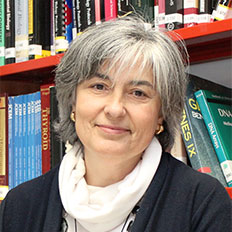 Prof. Isabel Varela-Nieto
Prof. Isabel Varela-Nieto Prof. Maria-Paz Viveros
Prof. Maria-Paz Viveros